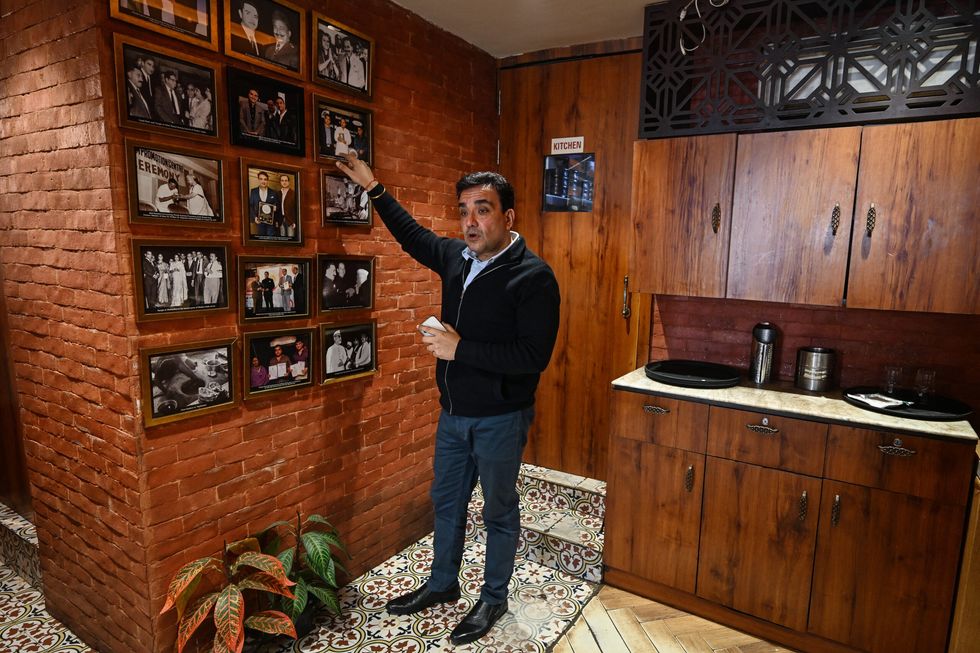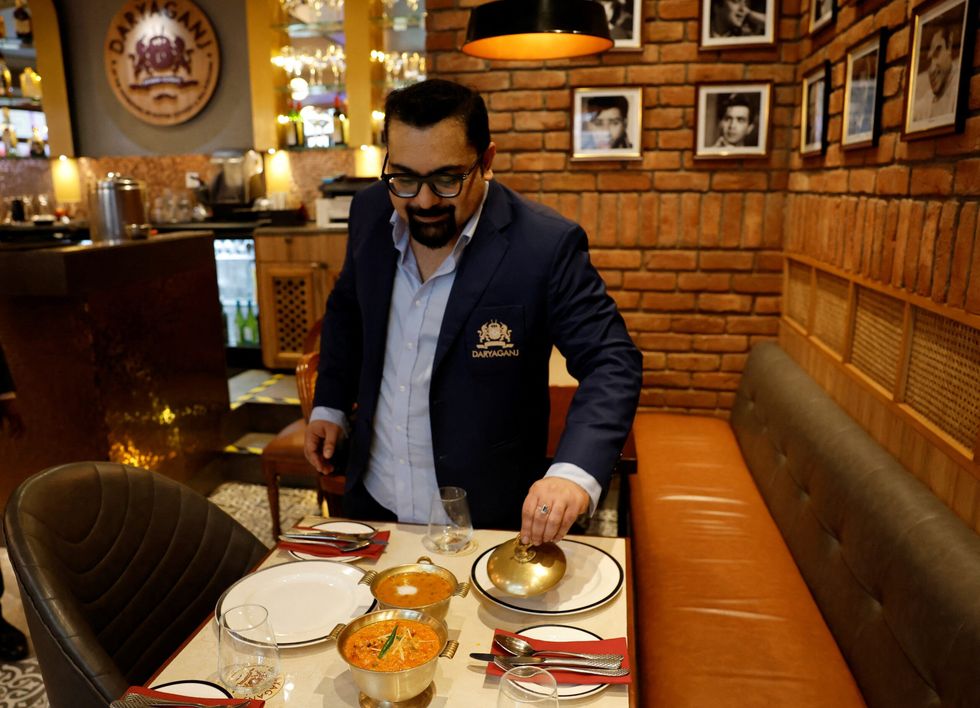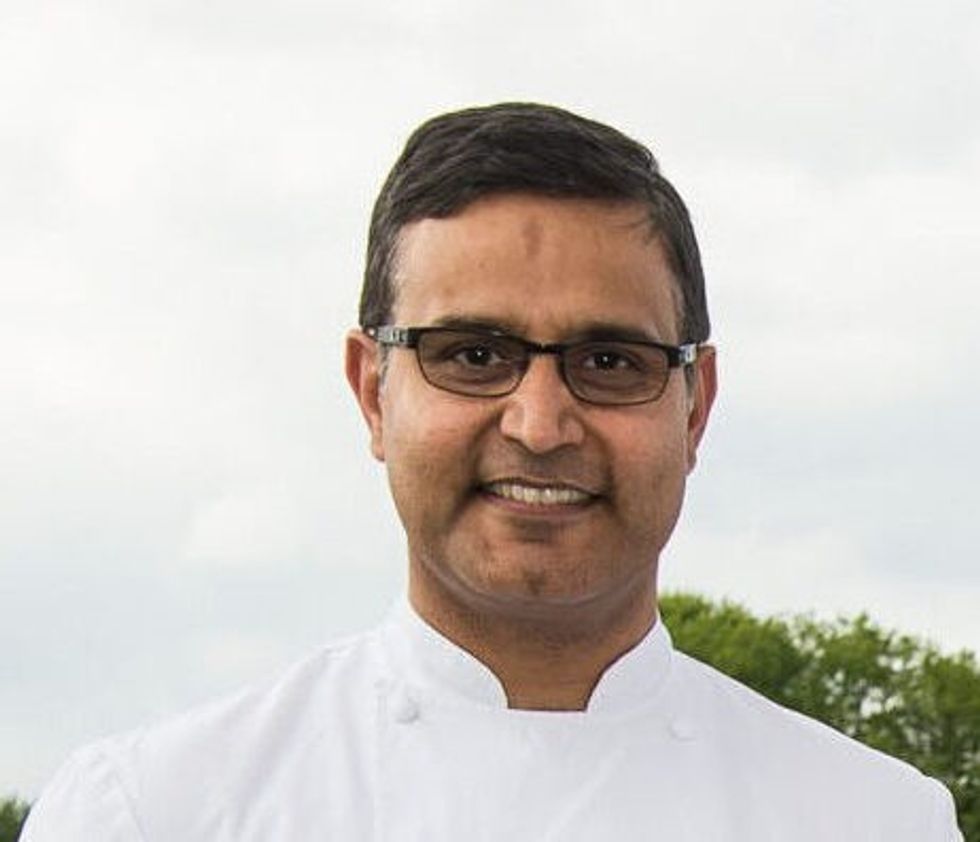WHO really invented butter chicken? The competing claims of two rival restaurants in Delhi – Moti Mahal and Daryaganj – have now gone global.
The dispute has ended up in the courts with the owners of Moti Mahal also demanding £200,000 in damages.
Foreign correspondents based in the Indian capital are piling into the two restaurants to do their “research” and enjoying the hospitality before filing their stories.
In London, Michelin-starred chef Atul Kochhar, who has been following the Delhi drama, said British tourists “who have gone to India on holiday are now demanding butter chicken when they come into my restaurants”.
As a consequence, chicken tikka masala, once hailed as the national dish of Britain, “is taking something of a back seat,” Kochhar revealed to Eastern Eye.

He said his British customers, who had relished the “rich texture” of the butter chicken sauce in India, wanted something similar when they returned home.
“Most restaurants in Britain, including mine, serve butter chicken,” he said.
As for its origins, he believed it was probably created in Delhi by refugees who came over from Pakistan after Partition.
Kochchar said the recipe originally used ghee (Indian clarified butter), but later butter was found to work equally well or even better. In theory, given today’s health-conscious clientele, it was possible to make a rich, textured sauce without using butter.
However, in Kochchar’s opinion, the best taste was achieved with a little butter.
“Butter chicken goes best with naan,” Kochhar ventured, though others claim pilau rice is better at soaking up the sauce.
Meanwhile, Iqbal Wahhab, who claims he was the mischief-maker behind the creation of chicken tikka masala, took a slightly different approach to the butter chicken controversy.
Wahhab, who founded Tandoori magazine as well as two well-known restaurants – the Cinnamon Club in Westminster, much frequented by MPs, and Roast in Borough Market – told Eastern Eye: “About 25 years ago, I went with (celebrity UK chef) Vivek Singh to Old Delhi to visit Moti Mahal, because that’s where everyone said butter chicken was created, but in the last couple of weeks, the protagonists in this drama have reached global fame over this, which will serve them well commercially for many years.
“The better question than who made the first one is who makes the best one and I’d like to see the court for this case replace the usual judges with a panel of experts like Madhur Jaffrey to whom the restaurants in question present their dishes. I’d be more interested in that verdict than a legal one.”
The Guardian and the Financial Times have both carried accounts of the dispute.
The Guardian reported that the lawsuit to resolve the row “was brought by the family who run Moti Mahal, a storied Delhi restaurant that counted India’s first prime minister, Jawaharlal Nehru, among its customers.
“According to the Gujral family, the dish was the creation of their grandfather Kundan Lal Gujral, who founded the restaurant in Peshawar, in what is now Pakistan. After India was split during Partition in 1947, they moved the restaurant to Delhi. They say the recipe, an indulgent curry that involves tender pieces of chicken cooked in a tandoor oven mixed into a rich tomato gravy laden with butter and cream, was invented by Gujral in the 1930s to use up leftover tandoor chicken.”
“You cannot take away somebody’s legacy… the dish was invented when our grandfather was in Pakistan,” Monish Gujral, the managing director at Moti Mahal, told Reuters.
“But rival restaurant Daryaganj has also staked its claim to butter chicken’s origins. The restaurant owners say that their relative, Kundan Lal Jaggi, had worked with Gujral when he moved his restaurant to Delhi in 1947 and it was there that butter chicken was created. This, they say, gives them the right to call themselves home to the first serving of the dish, a claim they say they trademarked in 2018.”

The Guardian added: “Given the slow pace of India’s courts, the pressing question of butter chicken’s origins may not be solved for months or even years. The next hearing of the case will be in May.”
The FT provided some historical context: “In the years following the traumatic 1947 Partition of India, two Hindu refugees roasting naan and kebabs at a restaurant in Delhi’s old city struck gastronomic gold. Their apparent innovation – to simmer the tandoori chicken in a creamy tomato gravy to make what is today known as butter chicken – became a staple of Indian menus worldwide.
“The question of who exactly dunked the meat into the sauce first has now, almost a lifetime later, become the subject of a Delhi High Court case that has divided India’s culinary scene.”
Moti Mahal’s current owner, Monish Gujral, told the FT: “It’s a matter of pride. Our customers have been coming to us for the last 100 years.”
The paper added: “The case has sparked amusement among foodies, who question the wisdom of trying to claim a dish that has been continuously adapted and reinvented by chefs globally, and dismissed it as a publicity ploy.
“Yet, it is the latest twist in a wholly serious battle for commercial control of one of India’s most important exports: its world-famous food. Many still recoil at the memory of how Ricetec, a Texan company, secured a US patent for basmati in 1997, triggering a dispute with New Delhi.
“That’s without even starting on British Indian innovations, like chicken tikka masala, a spicier cousin of butter chicken that is absent from subcontinental menus. A Pakistan-born chef in Glasgow claimed to have invented the dish by pouring tomato soup over chicken kebabs in the 1970s, leading to an unsuccessful campaign for protected status under EU law. A similar bid in Birmingham to secure the rights to balti also failed.

“The story of butter chicken can be emotive, evoking painful memories of the Partition that followed British rule. Refugees from what is now Pakistan brought with them tandoor ovens previously unfamiliar in cities like Delhi, according to food historian Anoothi Vishal, transforming the Persianised cuisine of the Mughal court into what we today call north Indian food.
“Butter chicken and dal makhani were everybody’s favourite when we used to go out and eat,” said Manish Mehrotra, the chef behind fine-dining chain Indian Accent. One of Mehrotra’s own contributions to the canon was to start serving kulchas, a flatbread, stuffed with butter chicken, a formula he said is now being replicated.
“There’s no fixed recipe that anyone can say is the authentic recipe,” he said.
“The dispute may get more confusing, with a third Delhi restaurant now staking its claim. The owners of the original Moti Mahal outlet, which was sold to another family in the 1990s but still operates under the name, are threatening their own lawsuit.
“‘It’s a false dispute for both of them,’ Blooty Chadha said at his restaurant, decked with signage asserting its own recipe ownership.
“They both cannot claim to be the inventors of butter chicken and dal makhani, because the rights are with us.’”


















